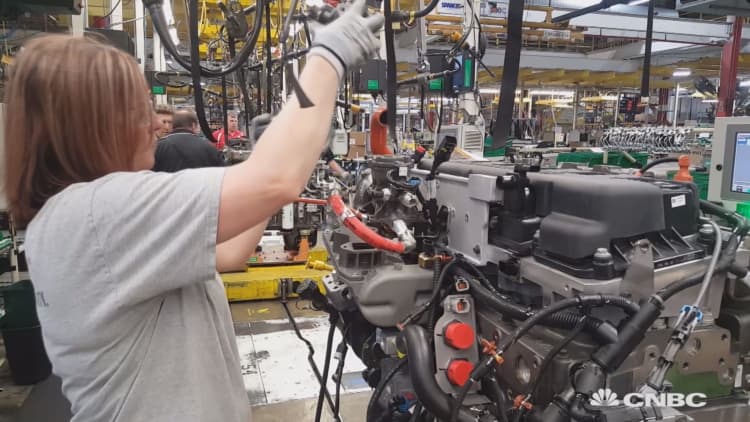
Reliable, quick transport is crucial to the smooth running of the global economy, but its significance is not without cost.
In 2016, for example, the transportation sector was responsible for 28 percent of greenhouse gas emissions in the U.S., according to the Environmental Protection Agency.
In California, one company is looking to use natural gas engines as an alternative to traditional ones. Cummins Westport designs and engineers “spark-ignited automotive natural gas engines” for commercial transportation — think buses and trucks.
“Natural gas is a fossil fuel sourced out of the ground,” Tom Hodek, sales and product introduction director for Cummins Westport, told CNBC’s “Sustainable Energy.” “It burns very clean because it has very little carbon in it,” he added.
Indeed, as the world looks to diversify its energy mix natural gas is becoming increasingly important. According to the International Energy Agency natural gas is a "versatile fuel" that supplies 22 percent of the energy used globally. For its part, the U.S. Department of Energy has described natural gas as being a “vital energy source” for the nation and the planet.
The natural gas engines developed by Cummins Westport range from 5.9 to 11.9 liters and 195 to 400 horsepower. The engines have also been designed to produce something called stoichiometric-cooled exhaust recirculation.
“That is actually where we have the right amount of oxygen to have complete combustion, which means we don't have any excess oxygen or excess methane,” Yemane Gessesse, Cummins Westport’s director of engineering, said. “The advantage of that is you're running your cylinders relatively cool, so the likelihood of forming oxides of nitrogen is reduced significantly,” he added.
Engines also have an electric control module (ECM). The ECM controls the combustion process and other factors that help to reduce emissions, according to sales and product introduction director Tom Hodek.




